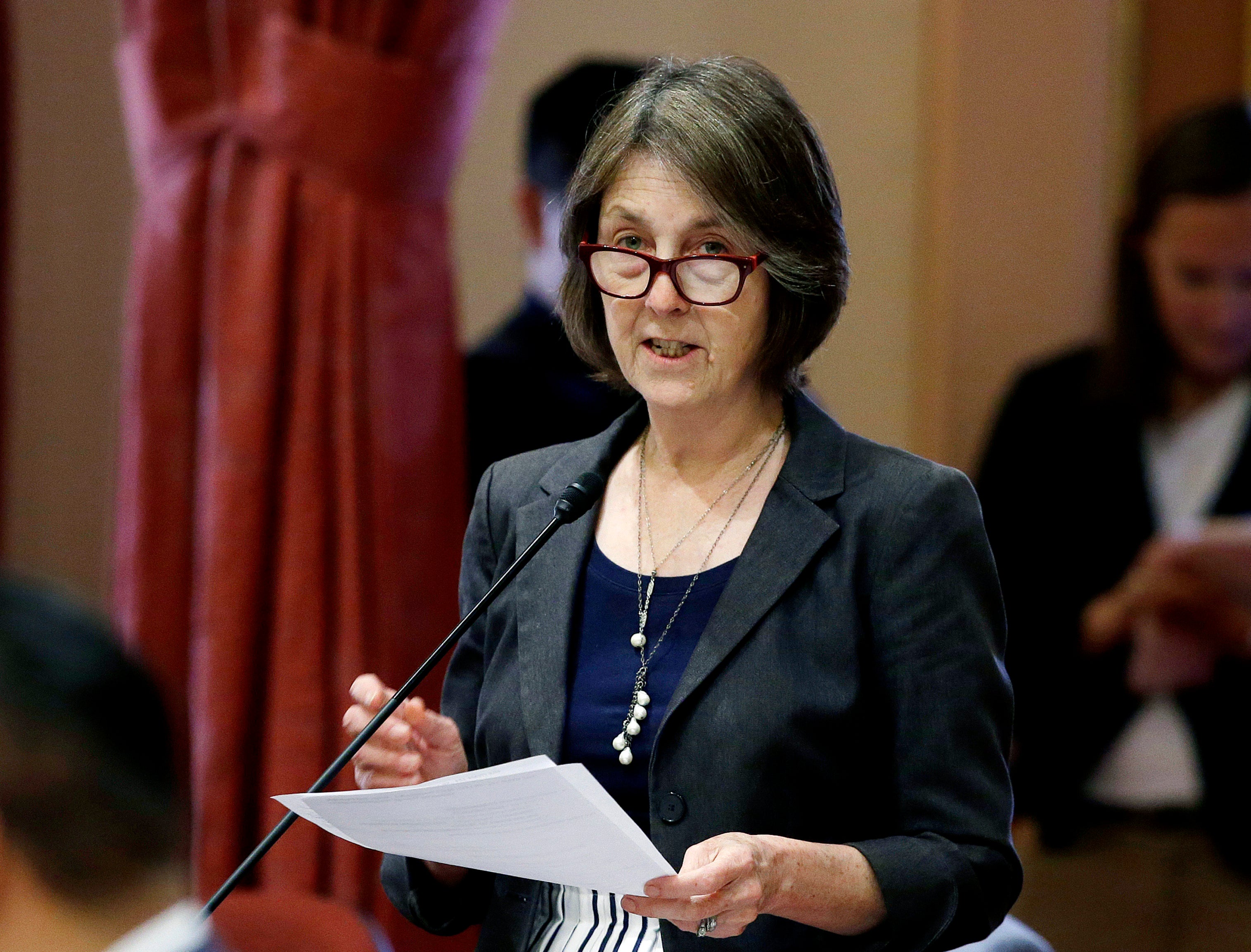California Democrats propose tax changes for businesses
Democrats in the California Senate say they want to raise taxes on big businesses so they can cut taxes for small businesses

Your support helps us to tell the story
From reproductive rights to climate change to Big Tech, The Independent is on the ground when the story is developing. Whether it's investigating the financials of Elon Musk's pro-Trump PAC or producing our latest documentary, 'The A Word', which shines a light on the American women fighting for reproductive rights, we know how important it is to parse out the facts from the messaging.
At such a critical moment in US history, we need reporters on the ground. Your donation allows us to keep sending journalists to speak to both sides of the story.
The Independent is trusted by Americans across the entire political spectrum. And unlike many other quality news outlets, we choose not to lock Americans out of our reporting and analysis with paywalls. We believe quality journalism should be available to everyone, paid for by those who can afford it.
Your support makes all the difference.Democrats in the California Senate on Wednesday said they want to raise taxes on some of the largest corporations so they can cut taxes for nearly every other business.
All California businesses pay a state tax rate of 8.84% on income, a figure that has not changed since 1997. This new proposal would create two tax rates for businesses in California. Companies would pay 6.63% on the first $1.5 million they make. Any money made above that would be taxed at 10.99%.
The higher tax rate would only apply to about 2,500 companies and would bring in an extra $7.2 billion in revenue for the state. Meanwhile, about 1.6 million businesses would benefit from the smaller tax rate, reducing state revenue by about $2.2 billion.
The money that is left over — about $5 billion — would go to poor people who claim tax credits and would boost state programs for public education, child care and combatting homelessness.
The proposal is still a long way from becoming law. Tax increases require a two-thirds vote of both houses of the Legislature. Democrats control a majority of seats in both chambers, but leaders in the state Assembly have not yet agreed to the plan.
Then there's Democratic Gov. Gavin Newsom, who would have to sign off on the proposal. Newsom has resisted raising taxes in the past as he has been building his national profile in recent years in advance of a possible run for president beyond 2024. Last year, Newsom campaigned against a ballot initiative that would have raised taxes on the rich to pay for environmental programs.
Wednesday, Newsom spokesman Anthony York said the governor could not support the proposal..
“It would be irresponsible to jeopardize the progress we've all made together over the last decade to protect the most vulnerable while putting our state on sound fiscal footing.” York said.
Still, Democrats in the Senate will try to sell the idea by framing it as a partial reversal of the federal tax cuts signed into law by former Republican President Donald Trump. Nearly every Democrat in California, including Newsom, opposed those cuts, which Trump signed into law in 2017.
“The Senate’s 2023 plan will provide much needed tax relief to those small businesses which are the backbone of our economy and that have been really whacked by inflation,” said state Sen. Nancy Skinner, a Democrat from Berkeley and chair of the Senate Budget Committee. “But it also ensures that the biggest corporations that pocketed massive tax cuts under Trump will start to pay their fair share.”
The California Chamber of Commerce opposed the plan on Wednesday, saying a tax increase would “send the wrong signals to job creators and investors in the state’s economy.”
"Now is not the time to test California’s ability to withstand the impact of an economic downturn or a recession by placing our economic success at risk,” said Jennifer Barrera, the chamber's president and CEO.
John Kabateck, California state director for the National Federation of Independent Business, which represents small businesses, said the proposal “looks appealing at first glance." But he said his years of experience in dealing with leaders in the state Legislature has taught him not to endorse proposals too quickly.
“We’re not very keen on getting a tax break for Main Street at the expense of other businesses,” Kabateck said.
Democrats in the state Senate based their proposal on budget numbers the Newsom administration released in January. Back then, Newsom said the state was facing an estimated $22.5 billion deficit.
Those numbers will change next month when Newsom updates his budget proposal based on new tax revenue received since January. It's likely the budget deficit will have grown, as tax revenues have continued to fall below projections. A larger budget deficit could make the Democrats' tax cut proposal infeasible.
Adding to the difficulty is that Newsom and lawmakers will have to pass a new spending plan before July 1 without knowing how much money the state has. That's because many Californians won't pay their taxes until mid-October, taking advantage of an extension offered after a series of strong winter storms caused widespread damage throughout the state.